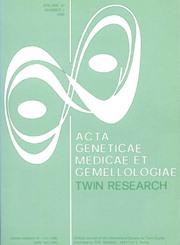Article contents
Bioethical Considerations on Cloning and Twinning
Published online by Cambridge University Press: 01 August 2014
Extract
The subject of cloning has had a deep impact on both public opinion and the scientific community, asking themselves about its meaning, its possible extension to humans, its potential applications and implications.
Cloning was often presented by the media as a technique that would allow perpetuating oneself.
The resulting impact of cloning on public opinion might be interpreted, in part at least, as making real the dream of reincarnation.
In the Christian faith cloning, as a hypothesis of reincarnation, has no place, since the soul is already immortal, while the body dies (excepting its reunion with its soul on the resurrection of the last day).
Thus a person's immortality is a dogma of faith for the believer, but only as immortality of the soul, that will rejoin its body only at the end of earthly time, while in our “earthly time” the body is-mortal.
The body's mortality is part of natural biological processes. Only in primitive organisms, such as bacteria, and in organisms reproducing through scions or similar processes (as farmers and florists well know) it is harder to set a definite moment for the birth or death of a single individual. But in sexually reproducing higher organisms, such as we are, the cycle of individual life is clearly encompassed and expressed by the well-known sequence whereby each individual “is born, grows, reproduces and dies”.
If we consider the individual in all its manifestations – what we geneticists call the “phenotype”, resulting from the interactions between genotype and environment – each subject is undoubtedly endowed with his individuality.
The repetition of the very same genotype does not mean repetition of the same individual, as clearly evidenced by the observation of identical twins (monozygotic, i.e., both derived from the same fertilized egg, the zygote) who, much as so closely resembling each other, are each endowed with his or her unique individuality.
- Type
- Research Article
- Information
- Acta geneticae medicae et gemellologiae: twin research , Volume 46 , Issue 3 , July 1997 , pp. 135 - 137
- Copyright
- Copyright © The International Society for Twin Studies 1999
- 1
- Cited by


